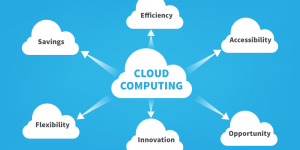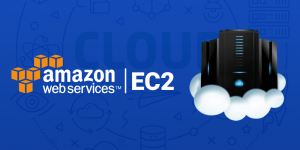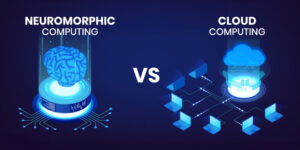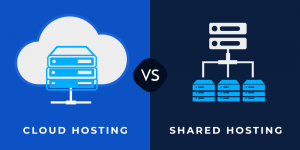
In today’s ever-evolving technological landscape, one term reigns supreme Demystifying Cloud Computing. The term is more than just a catchphrase; it’s a profound game-changer. Cloud computing has fundamentally reshaped how businesses and individuals manage, access, and process data and applications. Whether binge-watching your favorite series, collaborating on critical documents, or steering a global enterprise, cloud computing examples silently powers it all.
In this article, we venture on a journey to unravel the complexities surrounding cloud computing. Our destination? The top 10 real-world examples that illuminate this transformative technology. From industry giants like Amazon Web Services (AWS) and Microsoft Azure to cutting-edge solutions like Heroku and AWS Lambda, we’ll delve into how cloud computing enhances and redefines various sectors, making the previously unthinkable a reality. So, fasten your seatbelts because the cloud adventure begins right here.
What Is Cloud Computing?
Cloud computing is a revolutionary technology that fundamentally alters how we store, access, and oversee data and applications. At its core, it furnishes computing services encompassing servers, storage, databases, networking, software, and analytics, all delivered over the internet, often referred to as “the cloud.” Rather than depending on localized hardware and software, individuals and organizations can leverage an expansive, easily scalable, and collectively accessible pool of resources hosted within global data centers.
This paradigm yields unparalleled advantages: heightened cost efficiency, effortless scalability, universal accessibility, fortified security, and heightened adaptability. For web hosting, software application deployment, or extensive data analysis, cloud computing has become an indispensable asset for entities of all dimensions, igniting an era of unprecedented digital possibilities.
What are the benefits of Cloud Computing?
Benefits of Cloud Computing:
A. Cost-Efficiency
- Reduced Capital Expenditure: No need to buy expensive hardware.
- Pay-as-You-Go Model: Only spend for resources used, lowering operational expenses.
- Maintenance Savings: Cloud providers handle maintenance and updates, reducing IT costs.
B. Scalability
- On-Demand Resources: Effortlessly scale up or down based on changing requirements.
- Rapid Deployment: Launch new services or applications quickly to meet market demands.
- Avoid Overprovisioning: Efficiently allocate resources, eliminating wasted capacity.
C. Accessibility
- Anytime, Anywhere Access: Data and applications are accessible from any internet-connected device.
- Global Reach: Cloud services support remote work and international expansion worldwide.
- Enhanced Collaboration: Teams can collaborate seamlessly across geographies.
D. Security
- Robust Data Protection: Cloud providers implement advanced security measures and encryption.
- Compliance Standards: Adherence to industry-specific compliance requirements (e.g., GDPR, HIPAA).
- Disaster Recovery: Cloud offers reliable data backup and recovery solutions.
E. Flexibility
- Versatile Workloads: Supports various applications, from web hosting to machine learning.
- Customization: Tailor resources and configurations to suit specific business needs.
- Experimentation: Easily test new ideas or technologies without significant investments.
Cloud computing’s multifaceted advantages empower businesses to optimize operations, innovate faster, and respond nimbly to a dynamic digital landscape while minimizing costs and maximizing security.
Top 10 Cloud Computing Examples
1. Amazon Web Services (AWS)
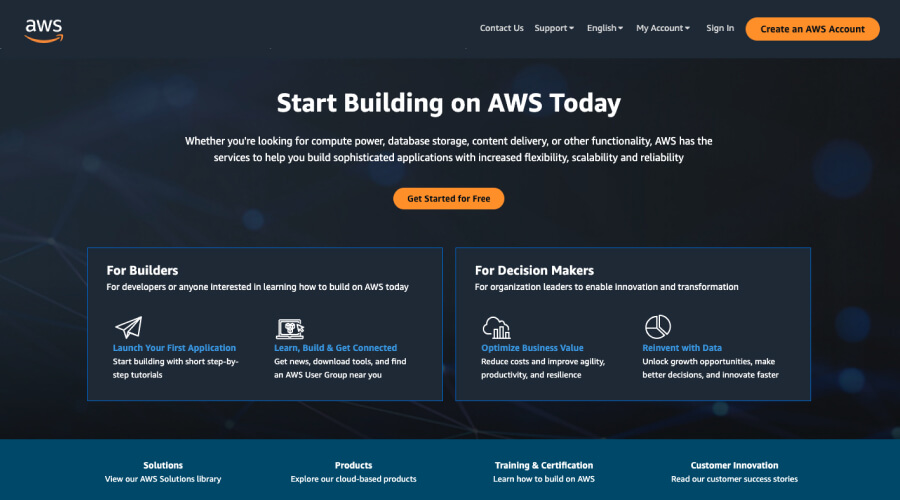
Amazon Web Services (AWS) stands as a beacon in the constellation of cloud computing examples, setting industry standards since its inception in 2006. AWS offers diverse cloud services, from computing power to storage and databases, enabling organizations to scale effortlessly.
Renowned for its reliability and global reach, AWS underpins countless businesses, including Netflix’s seamless video streaming and Airbnb’s robust infrastructure. The cloud giant provides machine learning tools, IoT solutions, and a thriving marketplace for third-party applications, cementing its status as an exemplar of cloud computing innovation and versatility in the digital age.
2. Microsoft Azure
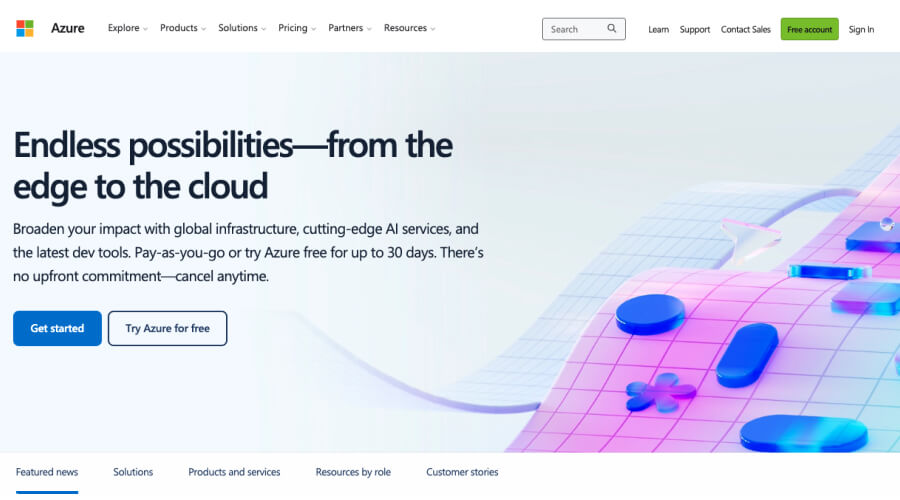
Microsoft Azure, a titan in cloud computing services, delivers an extensive suite of cloud services. Launched in 2010, Azure has transformed the digital landscape with its robust infrastructure, facilitating organizations worldwide. Azure is pivotal in diverse sectors like healthcare, finance, and gaming. Its partnership with BMW for autonomous vehicle development highlights its prowess.
Azure boasts AI and machine learning capabilities, powering innovative solutions like predictive maintenance in manufacturing. This cloud juggernaut supports Windows and Linux, making it a preferred choice for hybrid cloud deployments. With Azure, Microsoft continues to shape the future of cloud computing.
3. Google Cloud Platform (GCP)
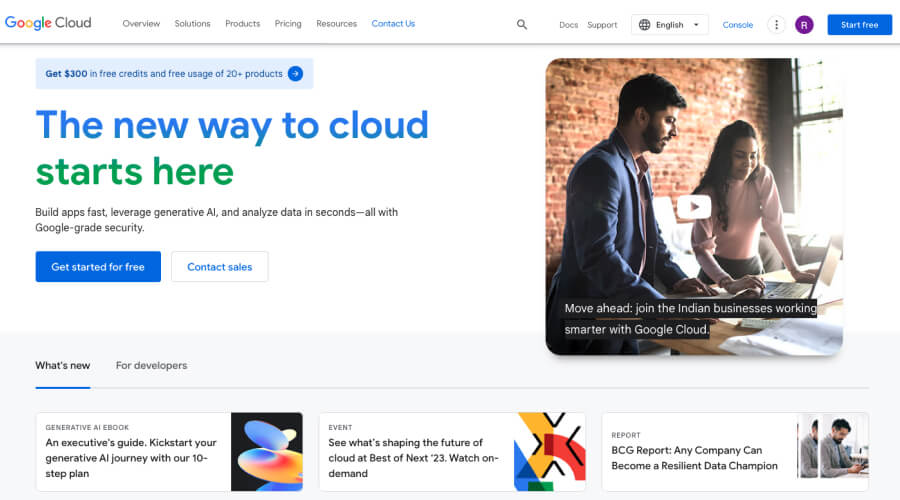
Google Cloud Platform (GCP) is a prominent example of cloud computing services. Launched in 2008, it offers a comprehensive suite of cloud services and infrastructure, empowering organizations to grow and innovate efficiently. GCP is pivotal in various industries, including healthcare, retail, and entertainment. For instance, its partnership with the Broad Institute revolutionized genomics research.
GCP boasts cutting-edge tools for machine learning, data analytics, and application development, driving technological advancements. With a global network and sustainability commitments, Google Cloud is a powerful cloud computing platform and a catalyst for positive change in the digital landscape.
4. Heroku
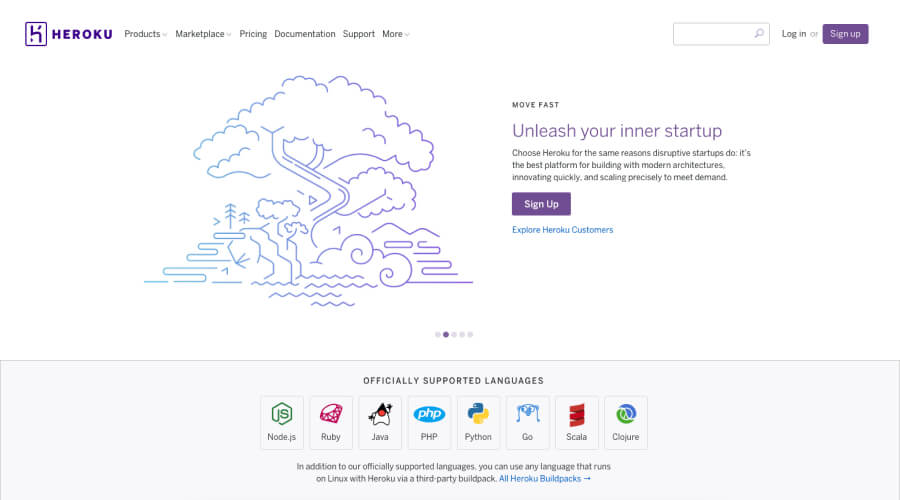
Heroku is a standout cloud technology example, renowned for its simplicity and developer-friendly approach. Founded in 2007, it simplifies the deployment and management of applications. Developers love Heroku for its seamless integration with popular programming languages like Ruby, Python, and Node.js.
It’s the go-to choice for startups and teams because of its simplicity. Airbnb and Citrix rely on Heroku’s platform-as-a-service (PaaS) model for rapid development and scalability. With its elegant abstraction of infrastructure complexities, Heroku exemplifies how cloud computing can streamline development and accelerate innovation in the digital age.
5. IBM Cloud Foundry
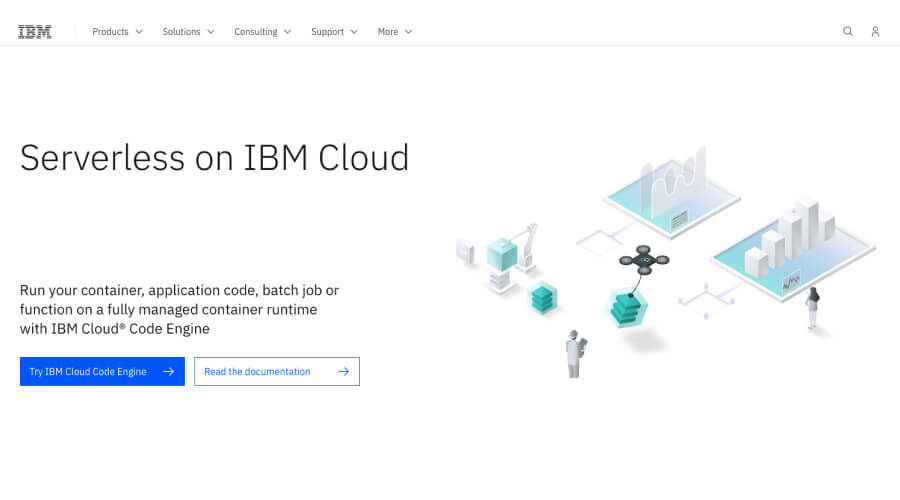
IBM Cloud Foundry is a pivotal player in cloud computing, offering a robust application development and deployment platform. Launched in 2011, it has earned its stripes as a versatile and enterprise-ready solution. IBM Cloud Foundry powers various e-commerce and healthcare applications.
It’s a key ingredient in enabling innovation, exemplified by its role in revolutionizing electronic health records at Medtronic. With its open-source architecture and support for multiple programming languages, IBM Cloud Foundry empowers developers to create and scale applications effortlessly, showcasing the transformative potential of cloud computing. It’s one of the best cloud technology examples.
6. Red Hat OpenShift
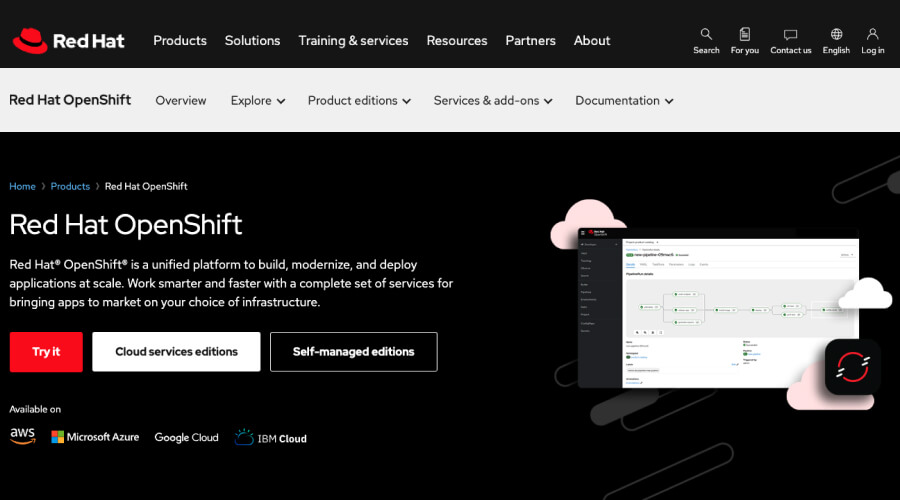
Red Hat OpenShift is a standout example of a cloud computing platform known for its robust Kubernetes-based container platform. Launched in 2011, it simplifies container orchestration and application development, enabling enterprises to innovate with agility. OpenShift has left its mark in a variety of industries, such as financial services and healthcare.
For instance, Swiss Re utilizes OpenShift to enhance data analytics and risk assessment. Its support for hybrid and multi-cloud environments adds to its versatility. Red Hat OpenShift showcases how cloud-native technologies can drive digital transformation and boost efficiency in today’s dynamic business landscape. It’s the best cloud computing platform.
7. Salesforce

Salesforce, a pioneer platform as a service in cloud computing, has redefined customer relationship management (CRM) since its inception in 1999. This cloud-based platform offers many tools to streamline sales, customer support, and marketing processes. Notable for its scalability and customization, Salesforce is a go-to solution for companies of all sizes.
It has transformed industries like telecommunications, helping T-Mobile improve customer experiences. Salesforce’s AppExchange marketplace further extends its capabilities while its AI-powered analytics enable data-driven decisions. As a prime example of SaaS (Software as a Service), Salesforce demonstrates how cloud computing can enhance productivity and customer engagement across diverse sectors.
8. Microsoft 365
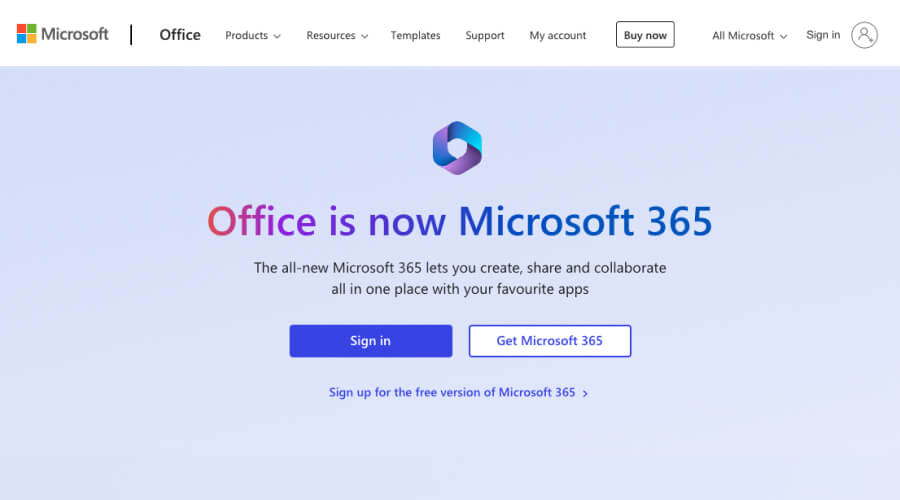
Microsoft 365, formerly Office 365, exemplifies the integration of cloud computing into daily work life. Launched in 2011, it offers a suite of productivity tools like Word, Excel, and Outlook, all seamlessly accessible from any device with internet connectivity.
Microsoft 365 revolutionizes collaboration and remote work, a fact well-illustrated by its use at General Electric, where it facilitates global team coordination. With features like real-time co-authoring and cloud storage, Microsoft 365 showcases how the cloud enhances productivity, connectivity, and flexibility, making it an indispensable tool for businesses and individuals in today’s digital age. It’s the best platform as a service in cloud computing.
9. Dropbox
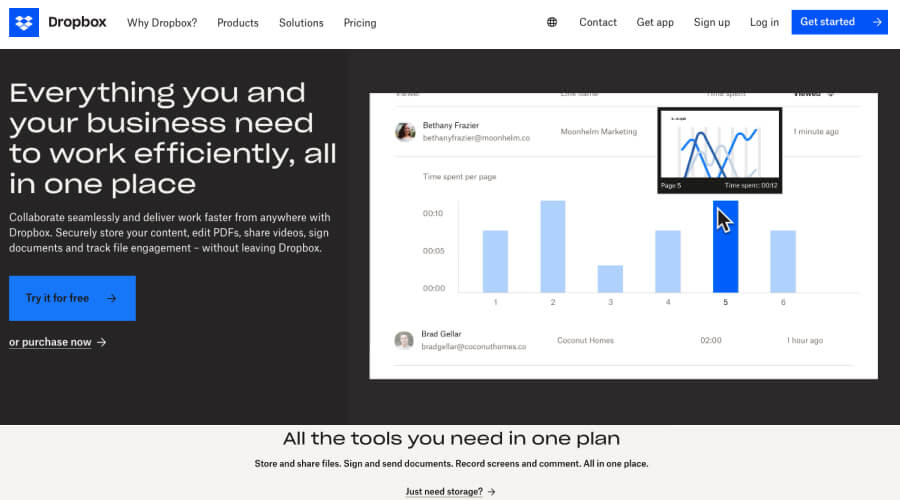
Dropbox is a prime example of how cloud computing has revolutionized file sharing and collaboration. Founded in 2007, it simplifies data storage and access, making files available from any device with an internet connection. Dropbox’s seamless synchronization has redefined productivity, and its impact is evident in sectors like education, where it facilitates remote learning.
Universities like MIT use Dropbox to enhance collaboration among students and faculty. With features like version control and secure sharing, Dropbox showcases how the cloud empowers efficient, secure, and accessible file management, making it a cornerstone of modern digital workflows. It’s the best cloud platform as a service.
10. AWS Lambda
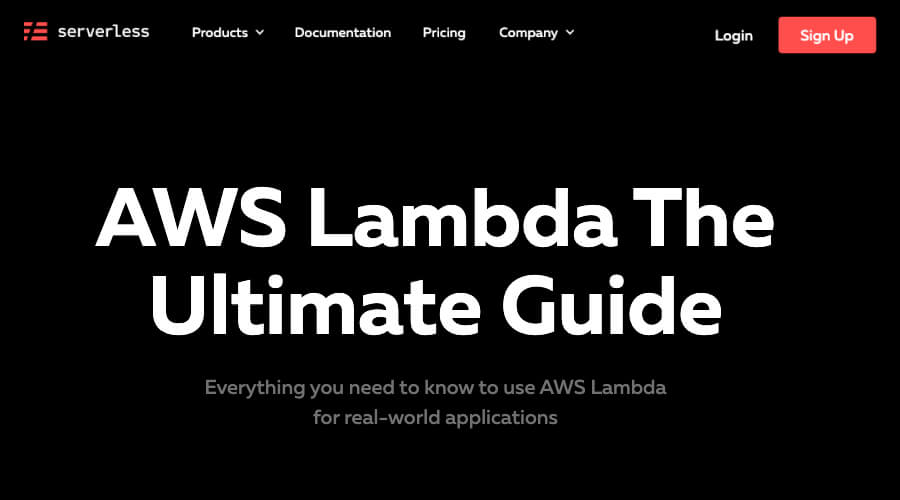
AWS Lambda is a groundbreaking service within Amazon Web Services (AWS), emblematic of serverless computing’s paradigm shift. Introduced in 2014, it enables developers to execute code responding to events without provisioning or managing servers. Lambda is a linchpin for numerous cloud computing examples, notably in smart home automation using Amazon Alexa Skills and real-time data processing in IoT applications.
This service underscores the potential of cloud computing to simplify development, reduce operational overhead, and usher in a new era of agile, event-driven computing solutions, offering unparalleled scalability and cost-efficiency for diverse use cases. It’s the best cloud platform as a service.
Related Topic: Edge Computing vs Cloud Computing
Real-World Use Cases
A. AWS in Netflix’s Video Streaming
- AWS hosts Netflix’s vast library, delivering content globally.
- Scalability ensures seamless streaming, even during peak hours.
- AWS’s analytics tools optimize content recommendations.
B. Microsoft Azure powering BMW’s Autonomous Vehicles
- Azure supports BMW’s autonomous driving platform development.
- Azure IoT enhances vehicle connectivity and data analysis.
- Real-time insights strengthen vehicle safety and performance.
C. Google Cloud’s Role in Healthcare Analytics
- Google Cloud aids healthcare providers in data analysis.
- AI and machine learning detect disease patterns and treatment trends.
- Secure data handling ensures HIPAA compliance.
D. Salesforce Enhancing Customer Relationship Management
- Salesforce centralizes customer data for streamlined interactions.
- AI-driven insights boost sales and marketing strategies.
- Customization adapts Salesforce to various industries.
Also Read: The Importance of Learning Salesforce
E. Dropbox for Collaborative File Sharing
- Dropbox simplifies file sharing and collaboration.
- Version control prevents data loss and conflicts.
- Cross-platform accessibility facilitates remote teamwork.
F. IBM Cloud Foundry for App Development
- IBM Cloud Foundry accelerates app development with containers.
- It supports continuous integration and delivery (CI/CD).
- Enhanced developer productivity and rapid scaling are vital benefits.
Conclusion
In this journey through cloud computing, we’ve witnessed its transformative power in action. These top 10 real-world examples demonstrate how cloud services have evolved from mere technology into the very fabric of our digital existence.
Cloud computing is at the heart of it all, whether it’s streaming our favorite shows on Netflix, enhancing healthcare with data analytics on Google Cloud, or redefining customer relationships with Salesforce. The cloud has become a catalyst for innovation, offering scalability, cost-efficiency, and accessibility that were once unimaginable. As we demystify cloud computing examples, we invite you to explore the endless possibilities it presents, reshaping industries and driving the future of technology.

